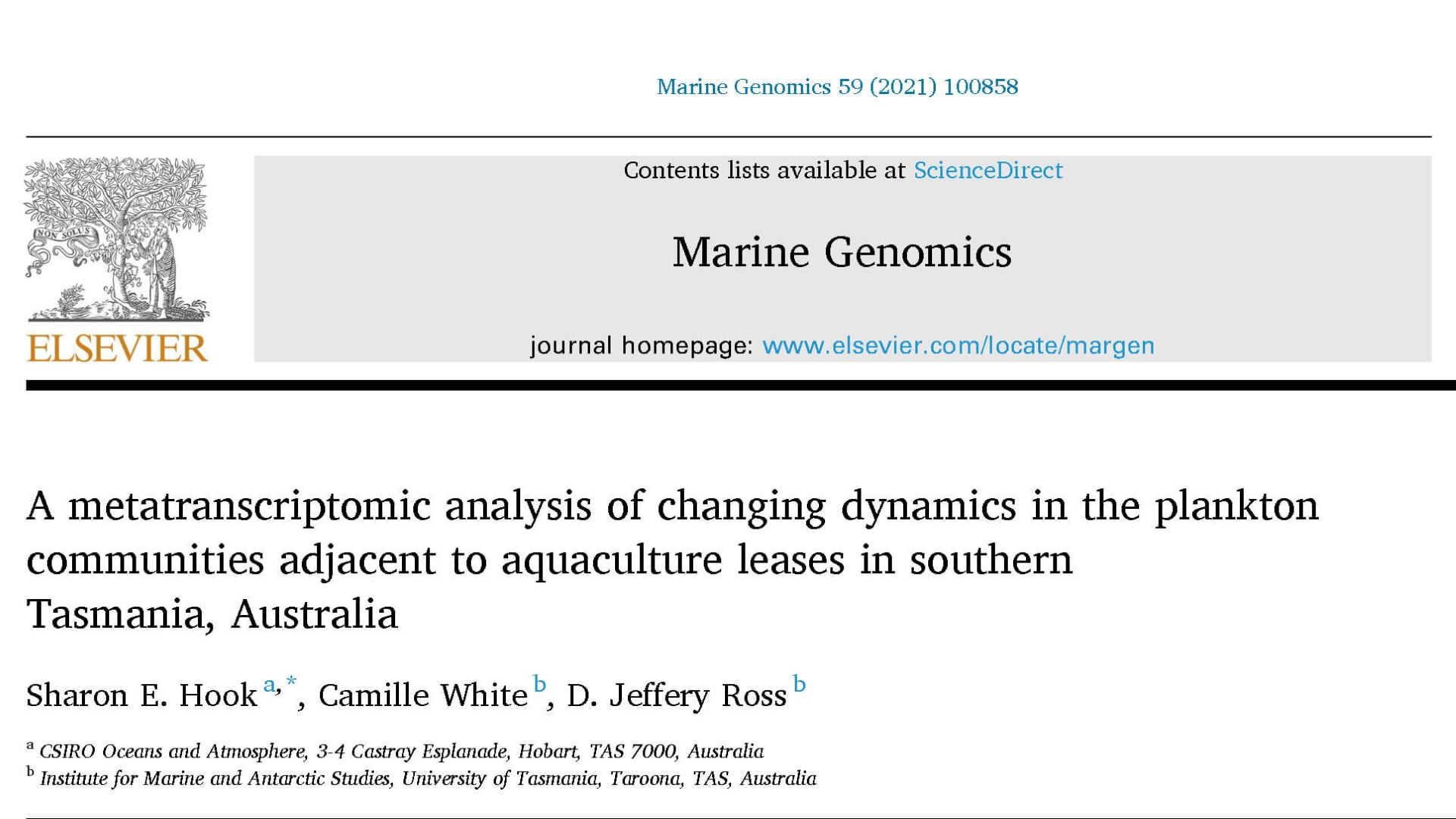
New research from Sharon Hook (CSIRO), Camille White and Jeff Ross (Salmon Interactions Team, IMAS) has highlighted the potential of using microbial gene expression as a tool for understanding more about how microscopic plants and animals which float in the water column (planktonic communities) are affected by finfish aquaculture.
Finfish aquaculture releases nutrients, including nitrogen, into the surrounding water column. Adding nutrients into the environment has the potential to change the types and abundance of planktonic organisms nearby as well as the way that they use nutrients.
In this study, the authors analyzed the microbial gene expression of the planktonic species (known as metatranscriptomics) at two sites in southeast Tasmania to find out whether this method can be used to understand the influence of nutrients released from salmon farms.
The study shows that in addition to helping describe the composition of plankton in the water column, this method can also tell us how the plankton are using the nutrients available to them. For example, the study found that where nutrient concentration was higher near the salmon pens, the plankton showed higher rates of ammonia transport, nutrient use and carbon fixation than further away where concentrations were lower.
This is an exciting development and application of a new monitoring tool that will improve our understanding of the influence of finfish aquaculture on plankton communities.
For more information, please read the full article here.